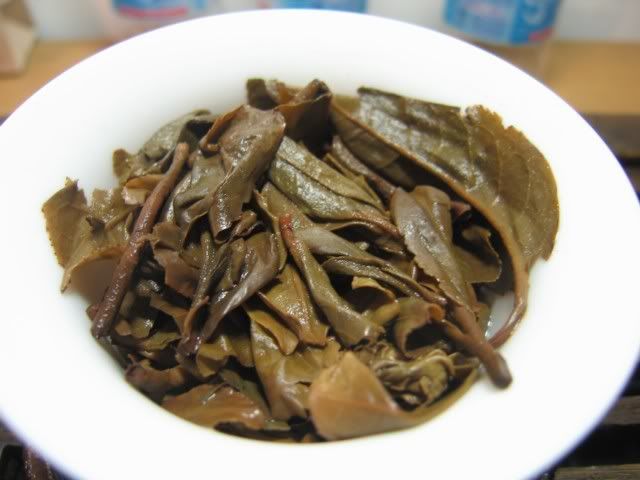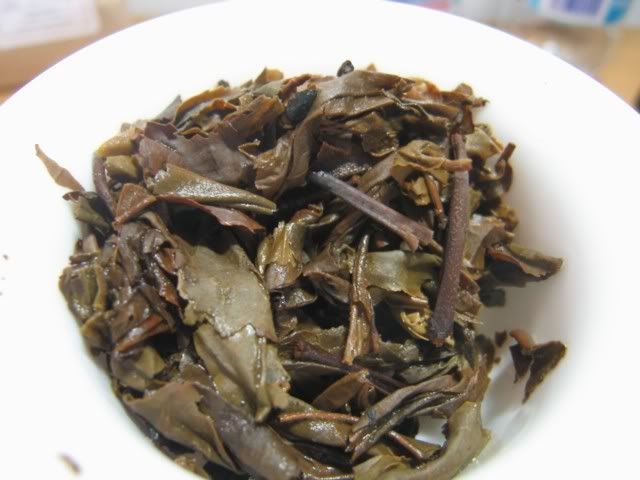This story in the Economist has me thinking — what exactly constitutes a scam? $130 is really not that much, in terms of tea, even in China, especially if the buyer is buying a number of gifts. So, price itself is really not a determinant.
I think in general, a scam requires two things: price gouging, and false advertising. Just overcharging people on tea without actual deception is, I think, not quite a scam — it just makes you really expensive. Someone selling a pencil for $20 is price gouging, but until they promise you that the pencil can do your homework for you, it’s not quite wrong — you’re just paying too much for a pencil.
It is when lies enter the picture when a simple overpriced item becomes a scam. I think this can be quite overt — this tea is a 1950s Red Label, when it is in fact a 1990s remake of inferior quality. The consumer is led to think that he is purchasing something he isn’t — that is a scam. When a cooked/raw mix is being sold as aged raw tea (which happens more than you think) it is a scam. When an overly roasted oolong is being sold as an aged oolong, that is a scam. Price, in some ways, does not matter.
Then there are more subtle forms of deception that are a little harder to delineate. For example, what if someone says a certain tea is particularly high grade, when in fact it is only of medium quality? What about price discrimination, when the price changes depending on the purchaser?
My general advice for people going to China is that unless they know exactly what they’re doing with tea, don’t buy any. More often than not, people who don’t know what they’re buying will end up overpaying for stuff that aren’t worth half the price of purchase. It’s even worse when person A asks their friend, person B, who’s going to China, to buy tea for them. That’s just like asking for bad tea for a bad price.
Are they being scammed, or are they just sold inferior goods for too much money? It’s a fine line. I think of paying $15 for popcorn and a drink at the movie theatre as grossly overpriced, which is why I never do it, but I don’t think it’s a scam, so to speak. They’re just exercising their monopolistic power within the theatre to stop you from bringing in outside food and thus forced to pay for theirs instead. For tea, however, there’s no such restriction. Unless the seller is lying, it’s not technically a scam, but it does make it a bad deal. So, unless you know what you’re doing, or are willing to take the risks, don’t bother with the source and get it from your local, reputable vendor — let them take the risk of buying bad/fake tea.



Yeah whisky prices have been leaking too, as well as luxury watches. I wrote a post maybe a decade ago…